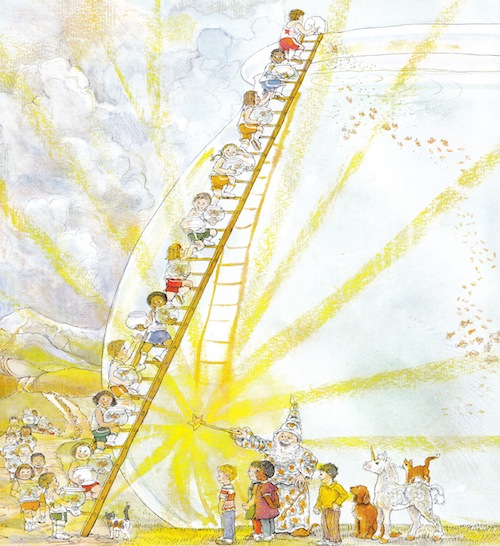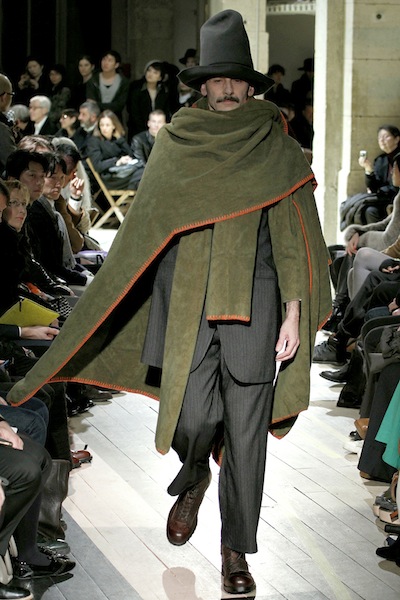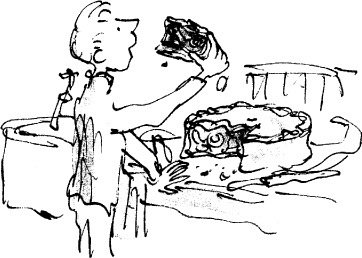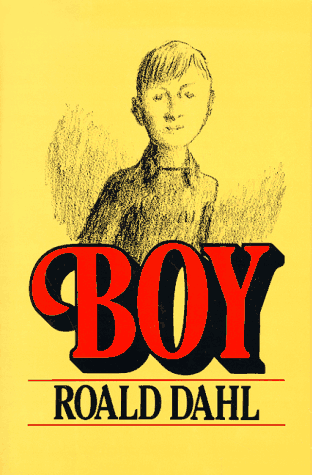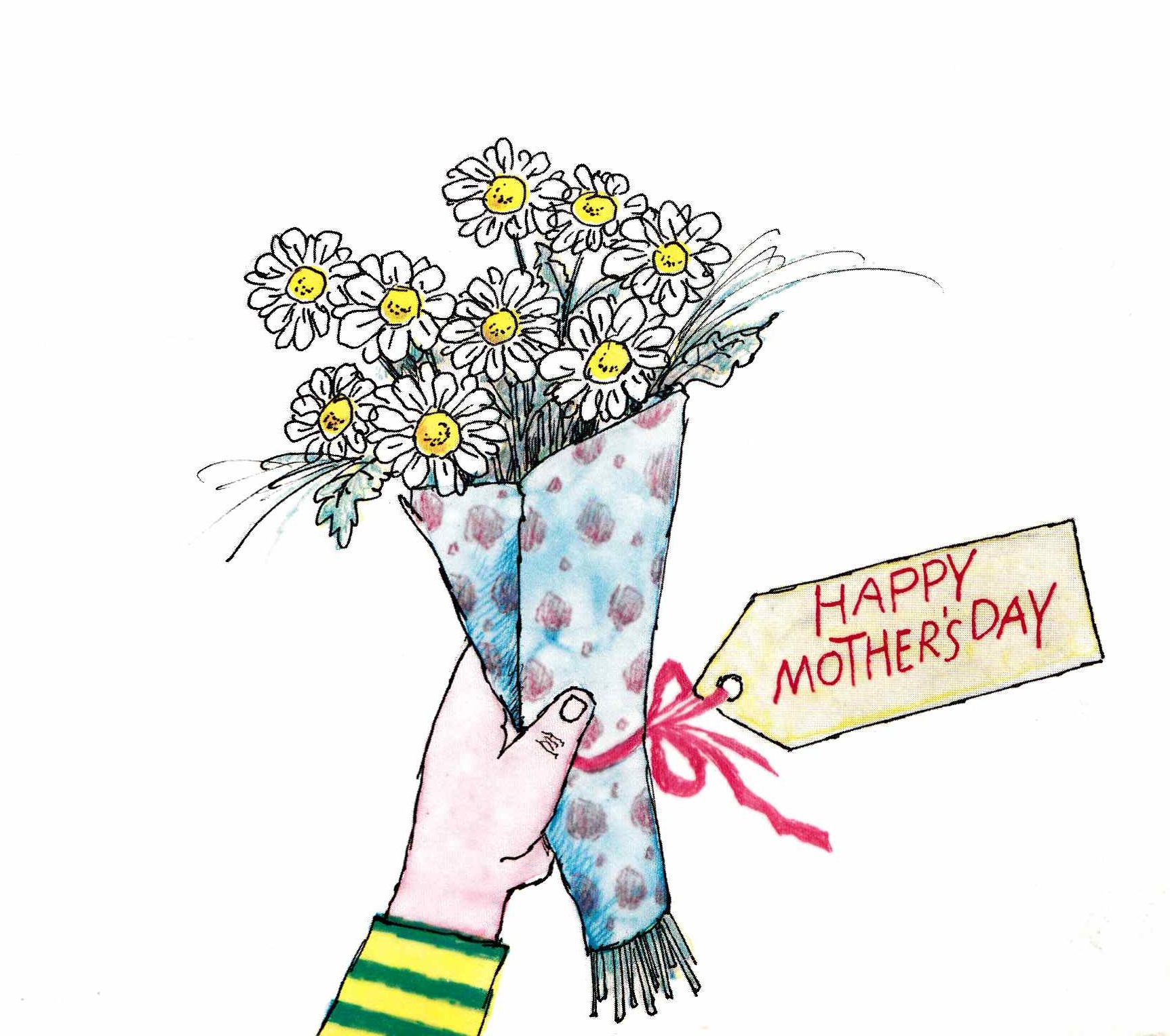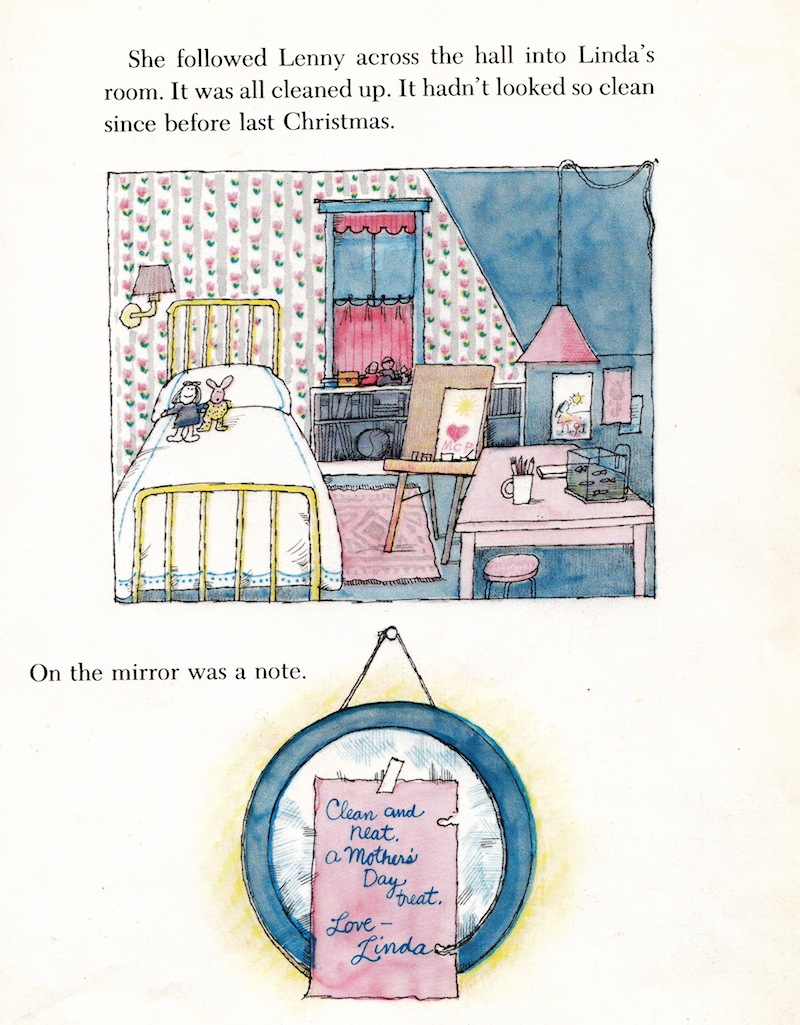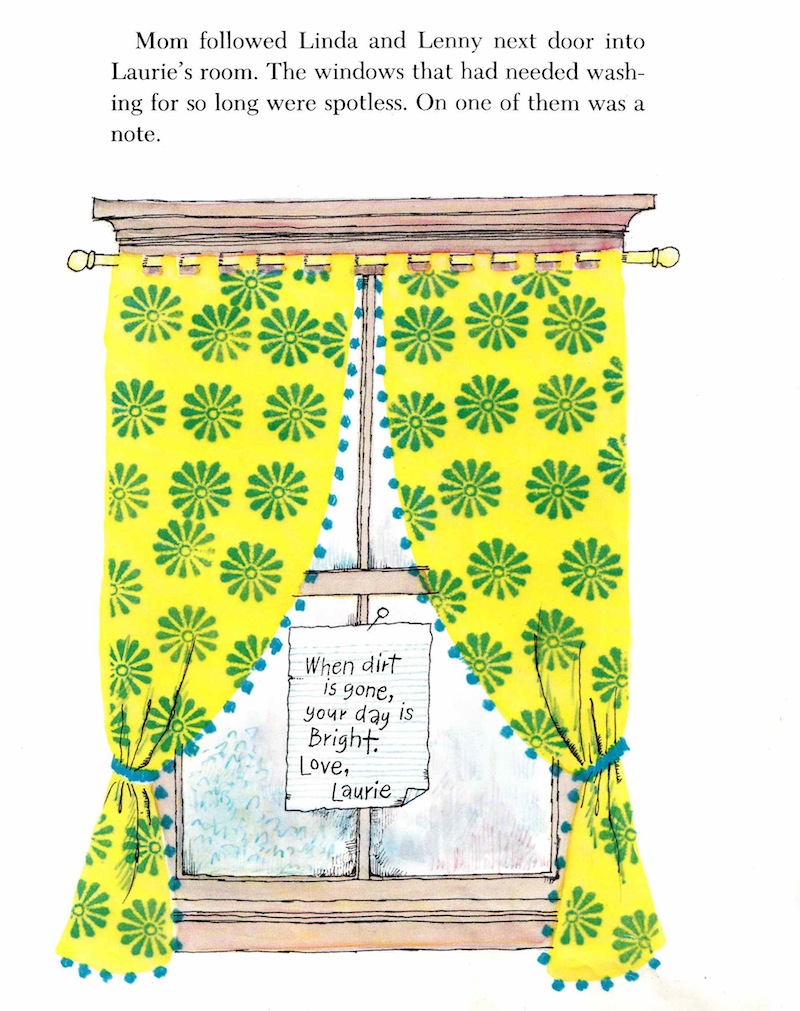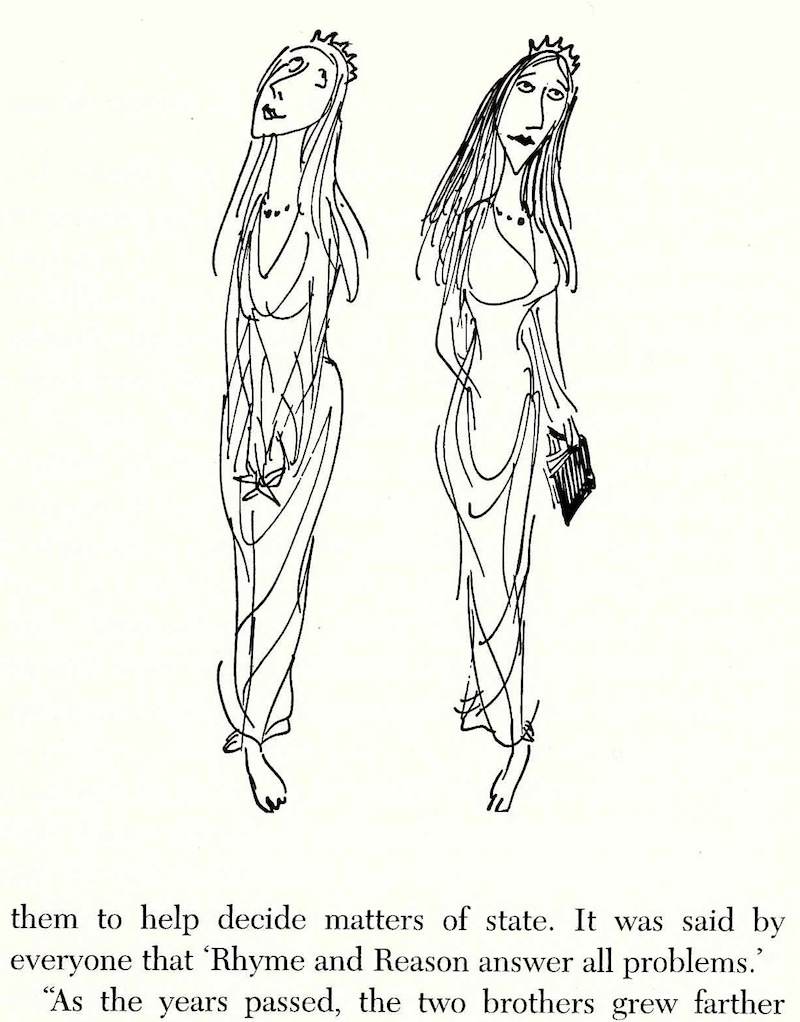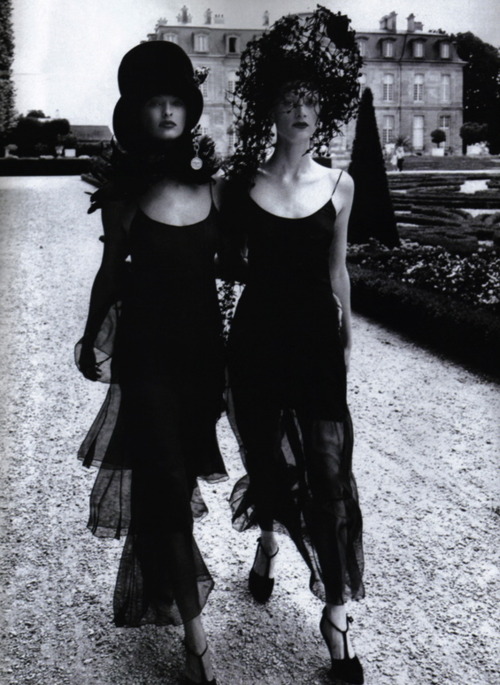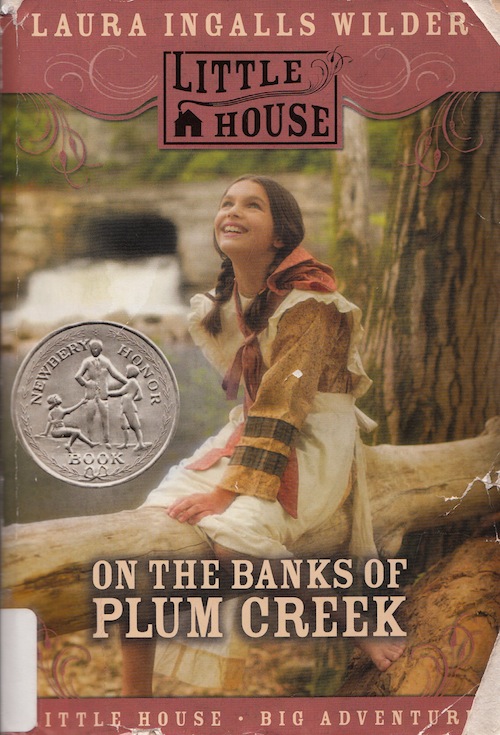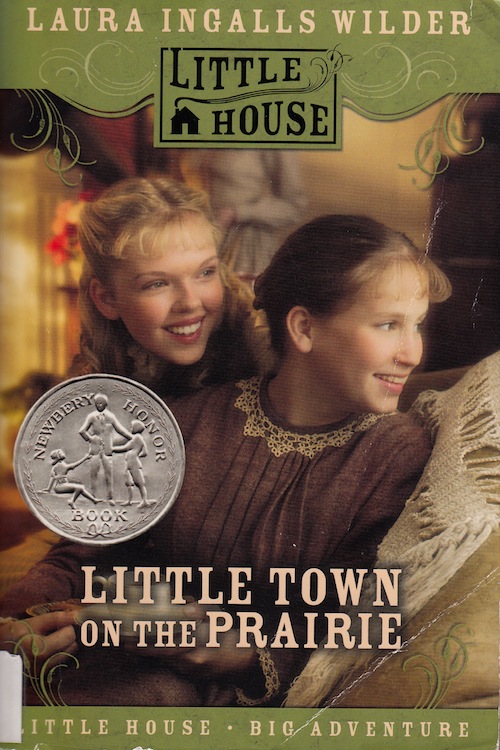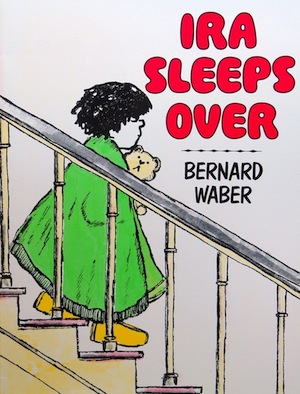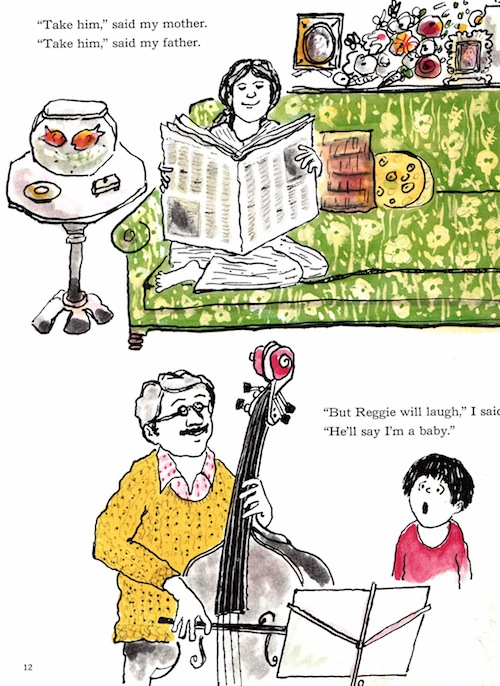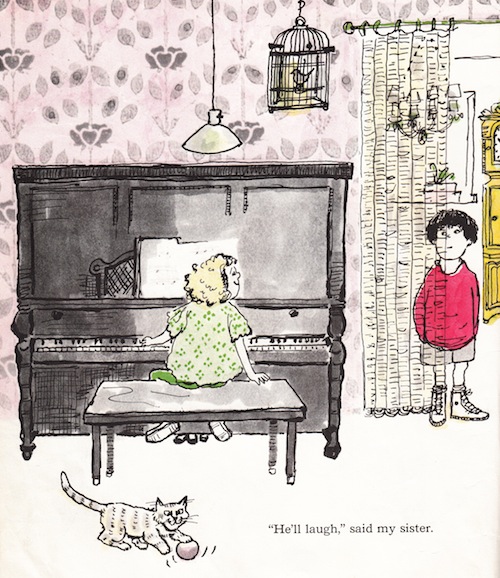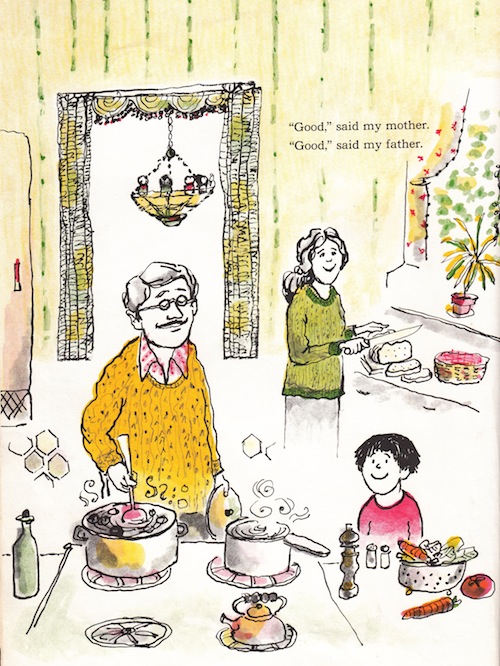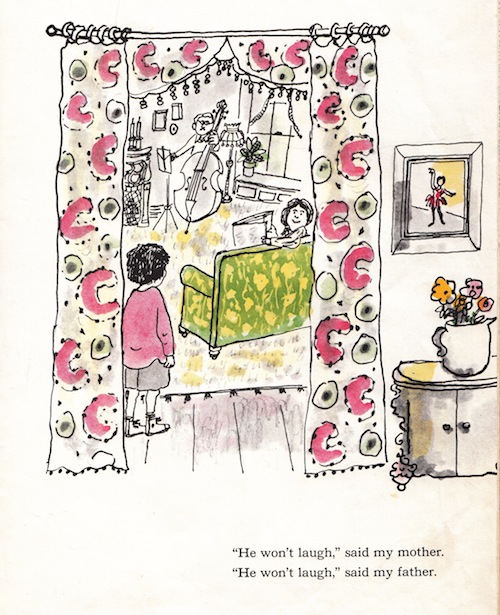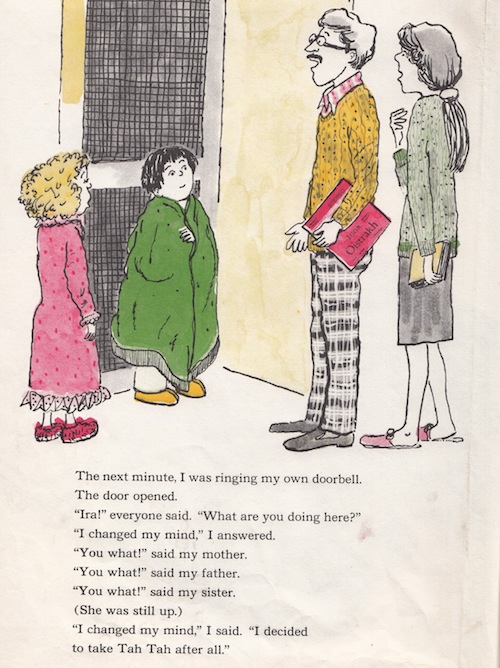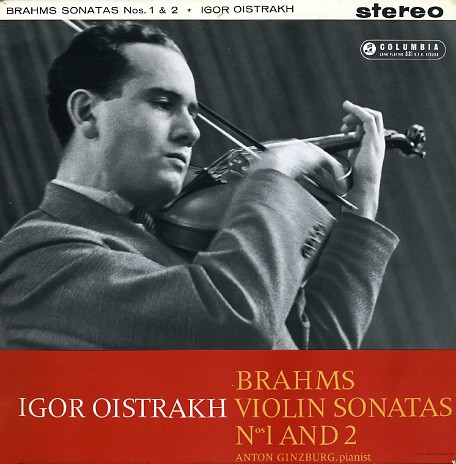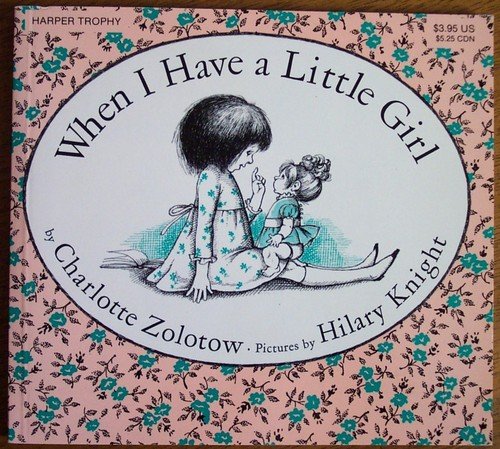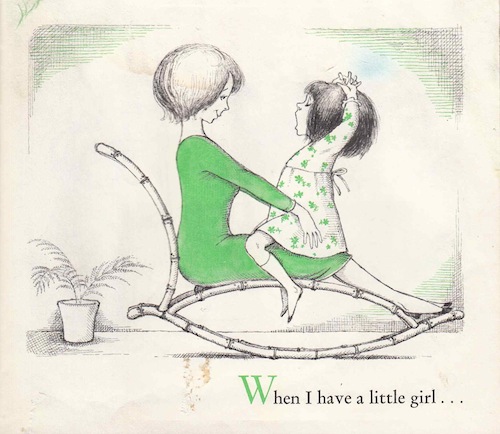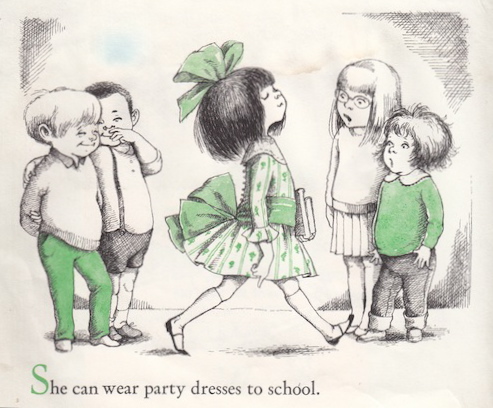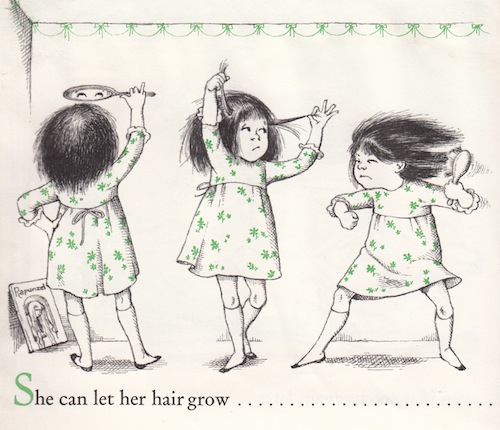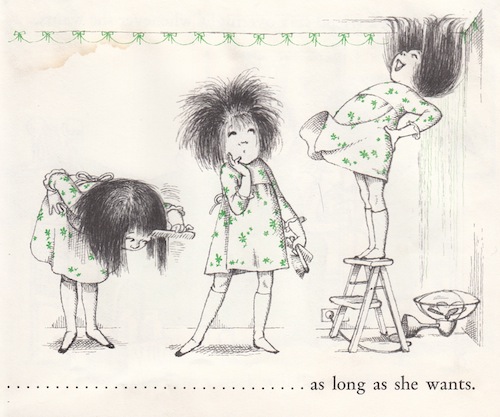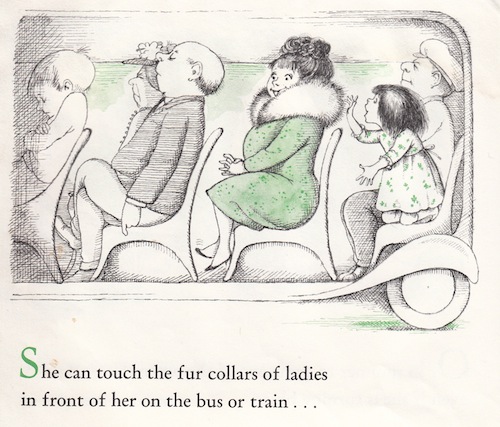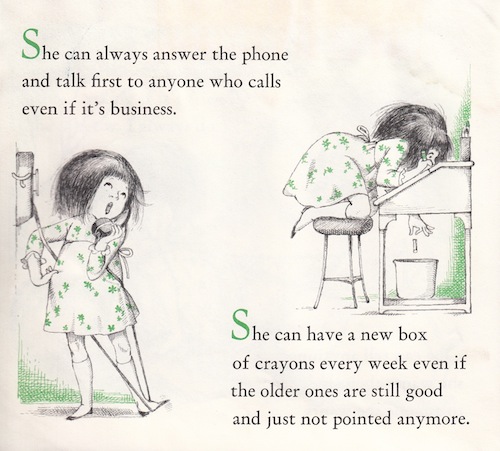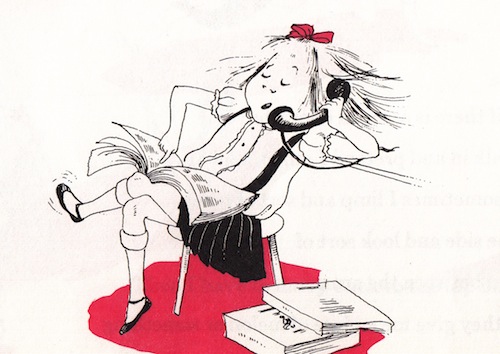
That’s me on the left, mad about something or other during a family vacation.
I was a stubborn child, with an impressive capacity for staying mad for long stretches of time. It’s a character trait that runs in the family. My mother is a champion grudge-holder, and my eight-year-old daughter is already proving herself a natural. So I can relate to any character who excels at keeping the pissed-off flame on long simmer. These are my three favorite books on the art of not-forgiving.
1) Spinky Sulks (1988) by William Steig
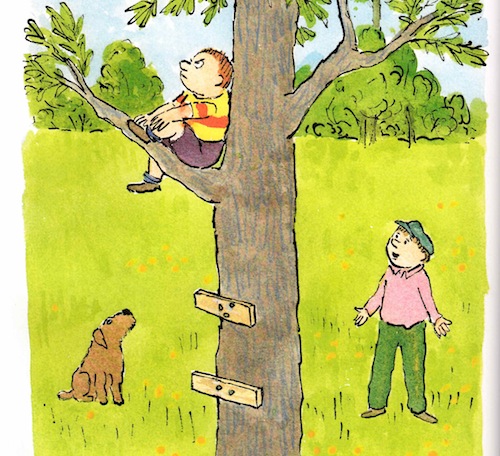
When Steig’s book opens, our grouchy protagonist, Spinky, has decided that his stupid family doesn’t love him anymore and his only recourse is to turn his back on the world. His mother, brothers and sisters and grandmother try to appease him, coaxing him with sweet words, flowers, and ice cream. But he’s unmoved. Spinky retreats to a hammock from which he refuses to budge, even through a rainstorm.
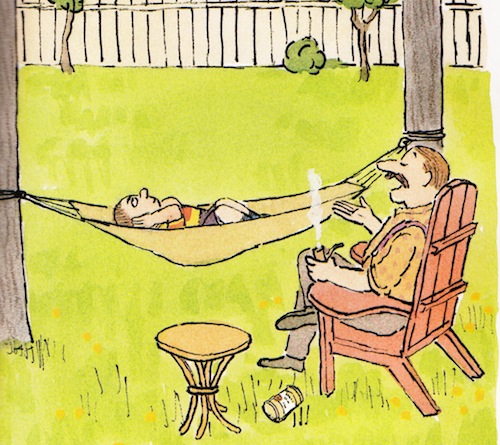
When we first got this book a few years ago, it was by far my daughter’s favorite Steig title. Spinky is unlikeable — but if you’re a sulker, you can’t help rooting for him. The emotions feel real and raw. I love these lines towards the end, when Spinky starts to cave:
He wasn’t mad anymore, but he still had his pride. After all his suffering, how could he just turn around and act lovey-dovey? That wasn’t his way.
2) Now Everybody Really Hates Me (1993) by Jane Read Martin and Patricia Marx
Turn Spinky into a girl, give him more of an imagination, launch him into the 90s, and you’ve got Patty Jane Pepper. When the crafty freckle-faced heroine is sent to her room as punishment for hitting her brother, she decides that she is never coming out. That’ll show them!
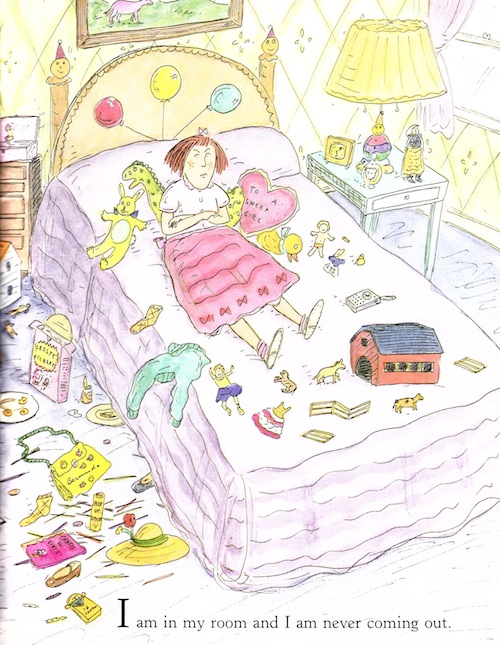 She’s not only a martyr, she’s a drama queen.
She’s not only a martyr, she’s a drama queen.
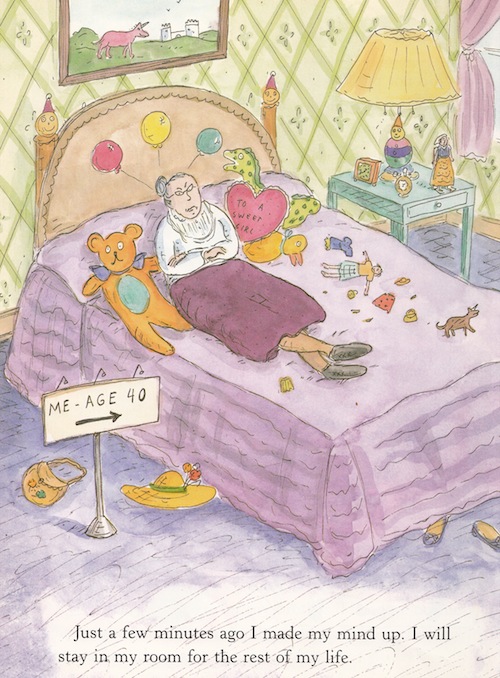 Does every kid in this situation have the same fantasies? The authors (and illustrator Roz Chast) nail them all. She will not eat! She will never clean up! She will speak a language only she can understand! She will find a cool way to sneak out of the house! She will run away from home! Patty Jane Pepper, c’est moi. I’m pretty sure I made a go of sleeping on my closet floor during one of my own childhood sulk sessions.
Does every kid in this situation have the same fantasies? The authors (and illustrator Roz Chast) nail them all. She will not eat! She will never clean up! She will speak a language only she can understand! She will find a cool way to sneak out of the house! She will run away from home! Patty Jane Pepper, c’est moi. I’m pretty sure I made a go of sleeping on my closet floor during one of my own childhood sulk sessions.
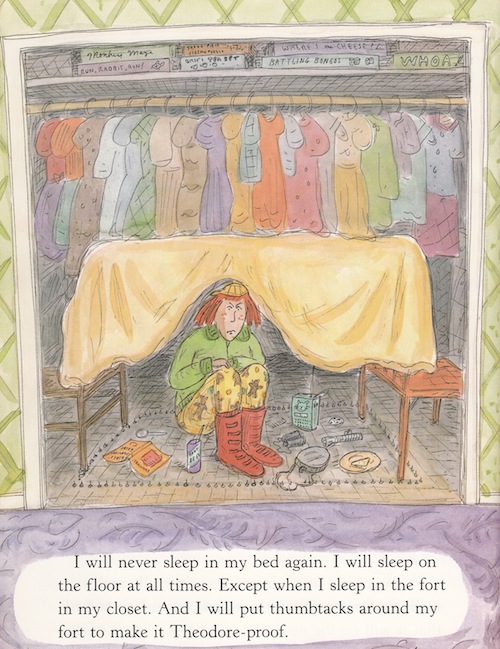 The book is funnier than Spinky Sulks — and more satisfying to boot. It ends the way I remember things really ending: With my parents lovingly dragging me back to the bosom of the family, to my secret relief.
The book is funnier than Spinky Sulks — and more satisfying to boot. It ends the way I remember things really ending: With my parents lovingly dragging me back to the bosom of the family, to my secret relief.
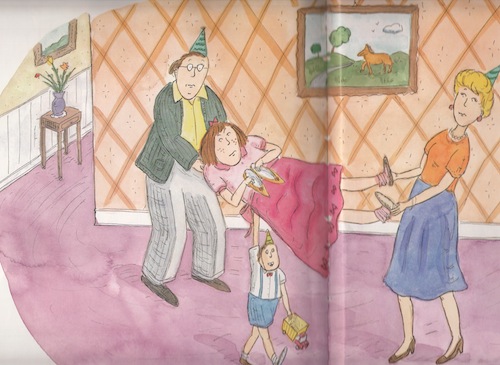 As Patty Jane knows, it’s all about the body language.
As Patty Jane knows, it’s all about the body language.
3) By The Side of the Road (2002) by Jules Feiffer
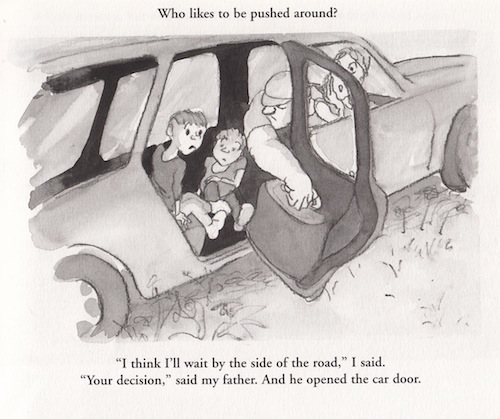
Every time I start reading this one with the kids I think, “Is it crazy for me to be reading this to my children?” Because Feiffer’s book is totally subversive of my god-given parental authority. The story starts innocently enough: A boy and his brother are squabbling in the back seat of the car when their father gets mad. The kid is given a choice: behave or get out. In a normal book, the character would suffer on the side of the highway for a few hours, learn his lesson, and give in. But in Feiffer’s insane story, the boy ends up LIVING ON THE SIDE OF THE ROAD FOR THE REST OF HIS LIFE.
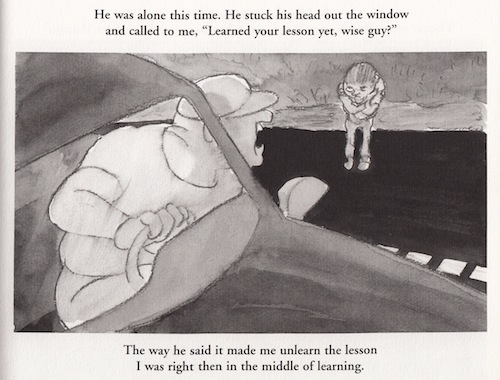
Not only that, he builds an incredible underground bunker complete with internet access, becomes a hero to other kids and later marries a cute, like-minded girl who digs a tunnel next to his. The boy never even has to apologize to his father; by the end, his aged, humbled parents decide they like his way of life better and actually move in with him.
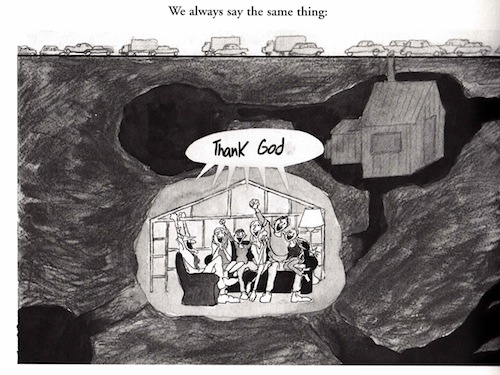
In short, the boy misbehaves, sulks, and wins through sheer stubbornness, defying both parental authority and societal norms. How has this incredible book not been banned?
